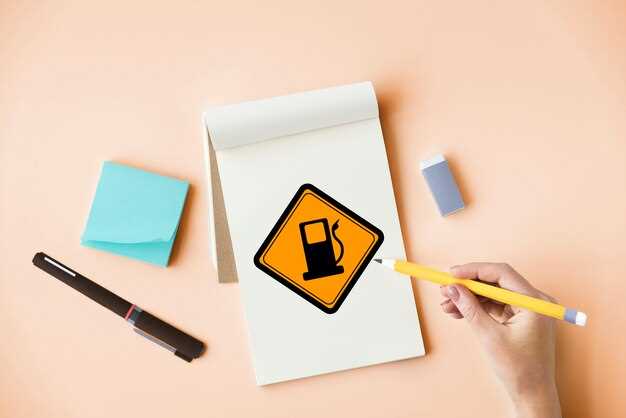
Custom license plates offer a unique opportunity for vehicle owners to express their personality, interests, or sense of humor. However, not all requests for these personalized plates make it through the approval process. Understanding the common reasons behind these rejections can help applicants improve their chances of getting the plate they desire.
One of the primary reasons for rejection is inappropriate language. State departments are particularly vigilant about keeping the roadways free of offensive or vulgar terms. This includes subtle variations in spelling or the use of numbers and symbols that may still convey a profane meaning.
Another frequent issue arises from ambiguity or confusion in the requested combination of characters. If a plate could be interpreted in multiple ways or resembles another existing plate, it is likely to be denied. Clarity in communication is essential to ensure that the intended message is understood.
Additionally, plates that seem to imply privilege or special status may also face rejection. This includes any wording that could suggest an association with law enforcement or government, which can raise concerns about fairness and equality among all drivers.
Understanding Unacceptable Language and Symbols

When applying for a custom license plate, it is crucial to consider the language and symbols used in the requested combination. State departments of motor vehicles (DMV) aim to maintain a standard of respect and decency on the road, which is why certain expressions are deemed unacceptable.
Profanity and Offensive Language are among the most common reasons for rejection. Combinations that include curse words, slurs, or derogatory terms can offend other drivers and clash with societal norms. This includes not only direct profanity but also cleverly disguised versions that are easily recognizable.
Hate Speech and Discriminatory Symbols are unequivocally banned. Plates that promote racism, sexism, or any form of discrimination violate public decency standards. Words or symbols associated with hate groups or ideologies are guaranteed to be rejected as they contribute to a hostile environment.
Sexually Explicit Language or Symbols are also strictly prohibited. Any reference that implies sexual acts or features vulgar imagery falls into this category. Communities generally expect that vehicle displays uphold a level of modesty, especially in family-oriented areas.
Alcohol and Drug References are frequently flagged as inappropriate. Plates that allude to drug usage or excessive drinking can be seen as promoting substance abuse. As driving under the influence is a serious offense, the DMV does not support messages that could glamorize such behavior.
Illegal Activity Implications can lead to application denial. Plates suggesting criminal behavior or associations with gangs or criminal enterprises are not tolerated. States take a firm stance against any message that could hint at wrongdoing, ensuring public trust and safety.
Understanding these guidelines is essential for applicants to avoid pitfalls in the custom plate request process. By steering clear of unacceptable language and symbols, drivers can create unique identifiers that comply with regulations and contribute positively to public discourse.
Compliance with State Regulations and Guidelines

Each state has specific regulations that govern the issuance of custom license plates, and adherence to these rules is essential for approval. State agencies often outline explicit criteria regarding the permissible content and format of custom plates. This can include limitations on the number of characters, the types of words that can be used, and the overall design aesthetics.
One primary reason for the rejection of custom plate requests is the use of offensive language or symbols. States typically have stringent guidelines that prohibit any text that could be considered vulgar, derogatory, or hateful. This policy is in place to ensure that plates uphold a standard of respectfulness and do not promote negativity or discrimination.
Additionally, many states restrict phrases or abbreviations that may be associated with alcoholic beverages, drugs, or any illegal activity. This is aimed at maintaining public safety and reflecting community values. Applicants must be cautious not to inadvertently choose combinations that could be interpreted as promoting such behaviors.
Proper formatting is equally vital. Most states stipulate specific combinations of letters and numbers, requiring certain arrangements to facilitate identification and avoid confusion. For instance, some jurisdictions may not allow special characters, while others might require spaces to adhere to their prescribed format.
Applicants should also be aware of disallowed references to government entities, trademarks, or other protected names. This stipulation is in place to prevent misrepresentation and legal complications arising from intellectual property rights violations.
Failure to comply with any of these regulations will invariably lead to rejection. Consequently, it is crucial for applicants to familiarize themselves with the individual state guidelines before submitting their requests. Understanding these requirements not only streamlines the approval process but also enhances the chances of obtaining a unique and personalized license plate that abides by legal standards.
Conflict with Existing Plate Designs or Combinations
One of the primary reasons custom plate requests are rejected is due to conflicts with existing plate designs or combinations. This can occur in various ways, which are outlined below:
-
Similar Combinations:
If a requested combination closely resembles an already issued plate, authorities may deny the request to prevent confusion among drivers and law enforcement.
-
Copying Popular Designs:
Some phrases or combinations are overly popular and may already be in circulation, leading to rejections to maintain uniqueness and individuality.
-
Trademarks and Copyrights:
Requests that infringe on trademarks or copyrighted material can be denied. Plates featuring brand names or famous phrases may violate intellectual property rights.
-
Inappropriate Variants:
Variations of existing plates that could be seen as derogatory, offensive, or in poor taste will often be rejected to maintain community standards and values.
-
Acronyms and Abbreviations:
Requests that use established acronyms or abbreviations which already represent something can be denied to avoid misinterpretation or misleading implications.
Understanding these potential conflicts can help applicants create unique and acceptable custom plate requests. Checking for existing combinations before submission is a recommended step to increase the likelihood of approval.
